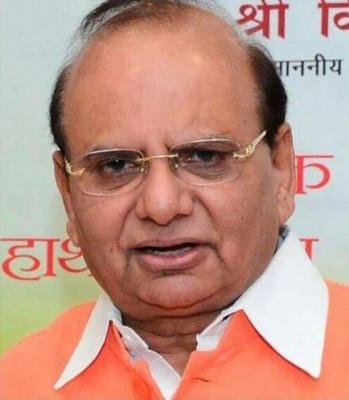
New Delhi, With Delhi Lt Governor V.K. Saxena greenlighting a CBI probe into the Delhi government's revamped excise policy and directing the Chief Secretary to submit a report on the role of officers in its implementation at once triggered a fresh round of the continuing slugfest between the ruling AAP and the BJP.
Even as the controversy refuses to die down, the Delhi government is planning to roll back to the old scheme of retail liquor sale in the city. According to sources, the old excise policy will be implemented for the next six months as the government is working to streamline a new policy for 2022-23.
As per the Delhi government's new excise policy which came into force in November 2021, Delhi was divided into 32 zones with each zone having 27 liquor vends. The new policy included shutting down government-run liquor shops. The move was aimed at curbing the liquor mafia and black marketing, increase revenue and improve consumer experience, and ensure equitable distribution of liquor vends.
Moreover, the government also made the rules flexible for licensees such as allowing them to offer discounts and set their own prices instead of selling on MRP fixed by the government.
Following this, heavy discounts were offered by vendors, which attracted large crowds at the wine shops. However, after protests by the Opposition, the Excise Department withdrew discounts for some time.
The policy also permitted stores to be opened in markets, malls, commercial roads/areas, local shopping complexes, and other such places as long as the standard rules and regulations for opening a new shop were followed.
In 2021, 849 liquor store licences were issued by the Delhi government, but many liquor shops downed shutters due to financial losses. From 849 shops, they came down to 649 stores in May 2022. The closure of liquor shops continued and their number dropped to 464 in June 2022. Shops were shut as many license holders were finding it difficult to make a profit after offering discounts due to competition and after paying high license fees.
The excise policy 2021-22 that ended on May 31 was extended by two months by the department offering the retail licensees a chance to renew their licenses paying fees on a pro rata basis for the extra period. Many of the licence holders, however, did not opt for the extension and shut shop as they were already finding it difficult to break even after paying high licence fees.
According to sources, there were different reasons that dampened the spirits of retailers, like the issue of opening liquor stores in non-conforming wards, the cut-throat competition via heavy discounts, and the entry of new brands in the market.
Sources in the Delhi LG's office claimed there was a quid pro quo at the top political level, where the minister in charge of the Excise Department, Manish Sisodia, took and got executed major decisions/actions in violation of statutory provisions and the notified excise policy that had huge financial implications.
The LG's office also claimed that the minister extended "undue financial favours" to the liquor licensees much after the tenders had been awarded and thus caused huge losses to the exchequer.
Recent developments including the ordering of a CBI probe drew sharp reactions from Delhi Chief Minister Arvind Kejriwal and Dy CM Manish Sisodia. "I have known Sisodia for 22 years and I have never seen anyone as honest or as much of a 'deshbhakt' as him," Kejriwal said.
Recently, AAP MLA Atishi said that the BJP cannot digest the fact that liquor licences are being allotted in a transparent, fair and competitive manner in Delhi.
"It is because now they cannot sell illegal liquor in slums which was earlier possible because of uneven distribution of stores in Delhi under the previous policy," the AAP MLA said. "That's why they have made a fake case and are misusing the power of the CBI, Income Tax Department and ED to threaten us from implementing a clean, transparent, competitive and profitable excise policy. They cannot stand the fact that government revenue has increased and their illegal earnings have decreased," Atishi added.


.jpeg)

